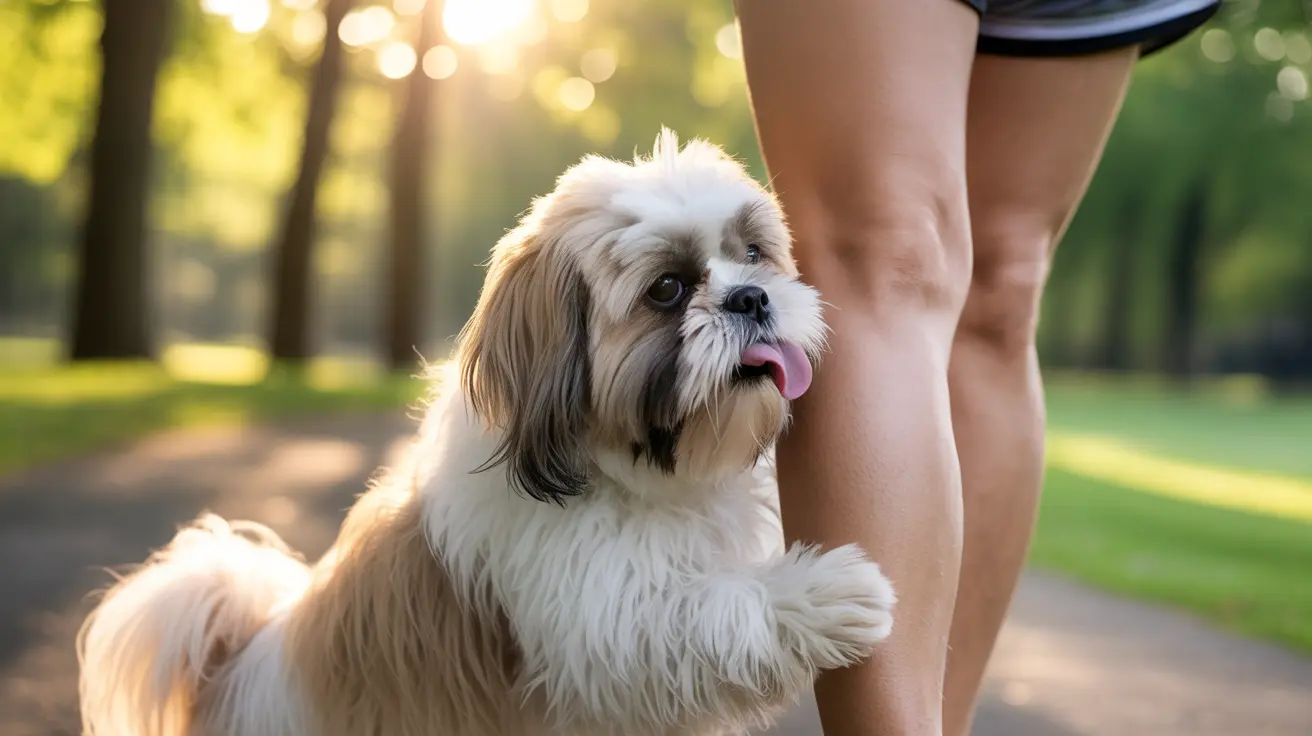If you've ever wondered why your furry friend seems obsessed with licking your legs, you're not alone. This common canine behavior can range from a simple display of affection to potential signs of underlying issues. Let's explore the fascinating reasons behind this behavior and when you might need to pay closer attention.
The Science Behind Dog Licking Behavior
Dogs are naturally drawn to our legs for several biological and behavioral reasons. Their extraordinary sense of smell can detect the salt from dried sweat on our skin hours after we've exercised or been active. This heightened olfactory ability makes our legs particularly interesting to them, especially after physical activity.
The Taste Factor
Your dog's powerful taste buds are particularly attracted to the salty residue left behind by sweat on your legs. Even when you can't detect it yourself, your dog can smell and taste these remnants, making your legs an appealing target for their attention.
Social and Emotional Reasons for Leg Licking
Showing Affection and Building Bonds
When your dog licks your legs, they're often engaging in an instinctive behavior that stems from their early puppyhood. In the wild, puppies lick their mother's face as a greeting and bonding gesture. This behavior naturally extends to their human family members, with legs often being the most accessible body part.
Attention-Seeking Behavior
Dogs quickly learn that licking gets a reaction from their owners - whether it's positive attention like petting or negative attention like pushing them away. This response can reinforce the behavior, making it a go-to strategy when they want to interact with you.
Medical and Behavioral Concerns
Signs of Underlying Issues
While occasional leg licking is usually harmless, excessive or compulsive licking might indicate:
- Anxiety or stress
- Allergies (environmental or food-related)
- Skin conditions or infections
- Pain or discomfort
- Parasitic infections
When to Seek Veterinary Care
If you notice your dog obsessively licking not just your legs but also their own body, or if the behavior suddenly increases, it's time to consult a veterinarian. Watch for additional symptoms like:
- Excessive scratching
- Red or irritated skin
- Changes in behavior or appetite
- Signs of distress or discomfort
Managing and Redirecting Leg-Licking Behavior
To address unwanted leg licking, consider these effective strategies:
- Redirect their attention to appropriate toys or activities
- Establish consistent boundaries and training
- Provide regular exercise and mental stimulation
- Maintain a regular grooming routine
- Consider using pet-safe deterrent sprays if necessary
Frequently Asked Questions
Why does my dog lick my legs after I've been sweating or exercising?
Dogs are attracted to the salty taste of sweat on your legs. Their keen sense of smell can detect salt and other minerals in dried sweat, making post-exercise legs particularly appealing to them.
Can my dog's licking of my legs be a sign of affection or bonding?
Yes, leg licking is often a sign of affection and social bonding. Dogs use licking as a way to show love and strengthen their connection with family members, similar to how they interact with other dogs.
When is my dog's leg licking excessive and potentially a medical concern?
Leg licking becomes concerning when it's compulsive, causes distress, or is accompanied by other symptoms like skin irritation, anxiety, or changes in behavior. These signs warrant a veterinary evaluation.
How can I stop my dog from licking my legs for attention without encouraging the behavior?
Ignore the behavior when it occurs, then reward calm, non-licking behavior. Provide alternative forms of attention and interaction, and maintain consistent boundaries.
Could my dog's persistent leg licking indicate allergies, pain, or stress?
Yes, excessive licking can be a sign of underlying issues including allergies, pain, or anxiety. If the behavior persists or is accompanied by other symptoms, consult with your veterinarian for proper diagnosis and treatment.
Conclusion
While dog leg licking is usually a normal behavior rooted in affection and natural canine instincts, understanding the underlying reasons can help you better respond to and manage this behavior. Pay attention to patterns and changes in your dog's licking habits, and don't hesitate to seek professional advice if you have concerns.






